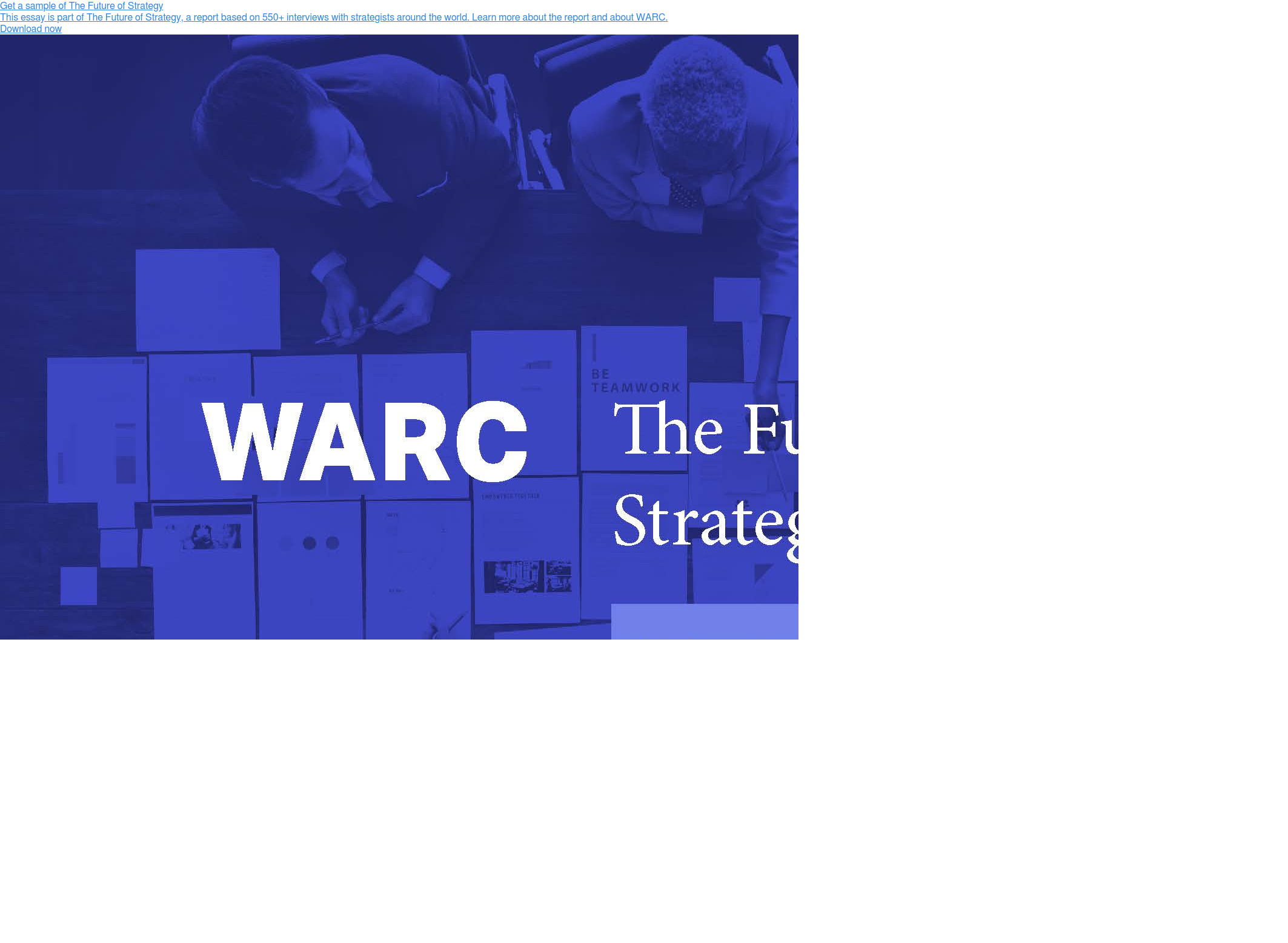To mark the launch of the Future of Strategy 2018, we are reposting a series of pieces on leadership from former heads of the BBH London strategy team, commissioned by Ben Shaw, the new Head of Strategy at BBH London. Here Will Lion and Lilli English, former joint heads of planning at the agency explore the meaning of feeling.
Writing the last instalment in this series of leadership advice for a Head of Strategy is not unlike the feeling we had taking on the department a few years ago. We were keenly aware that we were standing on the shoulders of giants. And that’s a nice feeling. We felt we could see much further for talking to and learning from our predecessors.
It can also be pretty paralysing. All these great unshakeable leadership truths from great unmatchable leaders – was our job as Heads of Department to simply assimilate and do the best we could aka don’t. f*ck. it. up?
In large part, yes. But there was another critical part of the equation. Our context. People don’t change very fast, but their context does. Context can colour, and discolour, everything.
So, what was our context? In 2015, we saw an industry, an agency, a department still making sense of the new normal: data, science, accountability, logic, technology, utility, efficiency were (and remain) the new heroes. Stuck in the headlights of such overwhelming complexity and impatience, we were responding by crouching into a culture of extreme rationality. It was depressing us and depressing the work.
Today we’re all finding ways to better see, explain, embrace, and in some cases confidently push against this context. But stepping into our roles, we needed to arm ourselves with a collective vision that would make things feel simple again, renew confidence, and, most importantly, help get the best out of each and every strategist in the department.
Our answer was ‘Feeling’.
This is a classic BBH answer – Nigel Bogle’s words ‘sell through the heart’ echo through 60 Kingly Street. But it was also a fresh answer, fit for times that had drifted from this truth but needed it more than ever.
So, we made ‘Feeling’ everything.
Feeling in more places
We knew and had the hard evidence that emotion worked in comms, but we set about proving its importance in every corner of the brand experience, fast approaching half of BBH’s business. We obsessively collected and generated data to equip everyone, of every specialism. We even got a computer scientist to work with our data team to find new ways of measuring true feeling to create juicer briefs. The work started to get better, more effective, and critically more diverse.
Feeling in the sell
We armed strategy to sell with more ‘Feeling’, to persuade more artfully, to win over clients with not just the numbers but with the possibilities of thrill, joy, fear, effortlessness, silliness and seriousness to move people and bottom lines. We literally rewarded simple, emotional strategies and the magicians who could pull these off.
Feeling in the talent
Our brief to recruiters was to find those people who, yes, had mastered all the rational fundamentals of strategy but, on top of that, could find the feeling in things, take the leaps and inspire a room. The ten new strategists we brought into BBH over the last three years all had that special quality John Hegarty used to talk about by just rubbing his thumb and fingers together.
Feeling in the way we developed people
Hiring and keeping the best is one thing. But in the end, it’s how they feel that makes the difference – individually and as a collective. David Foster Wallace’s words on Leadership set the bar: “Deep down, you almost always like how a real leader makes you feel, the way you find yourself working harder and pushing yourself and thinking in ways you couldn’t ever get to on your own”. So, we overcommitted to care.
Feeling for other great leaders in the department
Being a duo set a precedent for the importance of partnership from the get go. And we greedily sought more. So, we created new roles: the wonderful Tom Roach leading Performance; Mel Arrow leading Entertainment; Lucian Trestler leading Labs. The relationships were one thing (they’re all awesome people) but our vision, albeit it simple, gave us a shared sense of mission. And they all made leadership more fun.
So what’s our advice? Yes, stand on the shoulders of giants. Yes, stuff yourself with their knowledge and experience. Yes, use all that as the head-start to being a great Head of Department. But don’t forget your unique context. And use that to set your vision, your mantra, your style, to take people with you and make them as brilliant as they can be.


